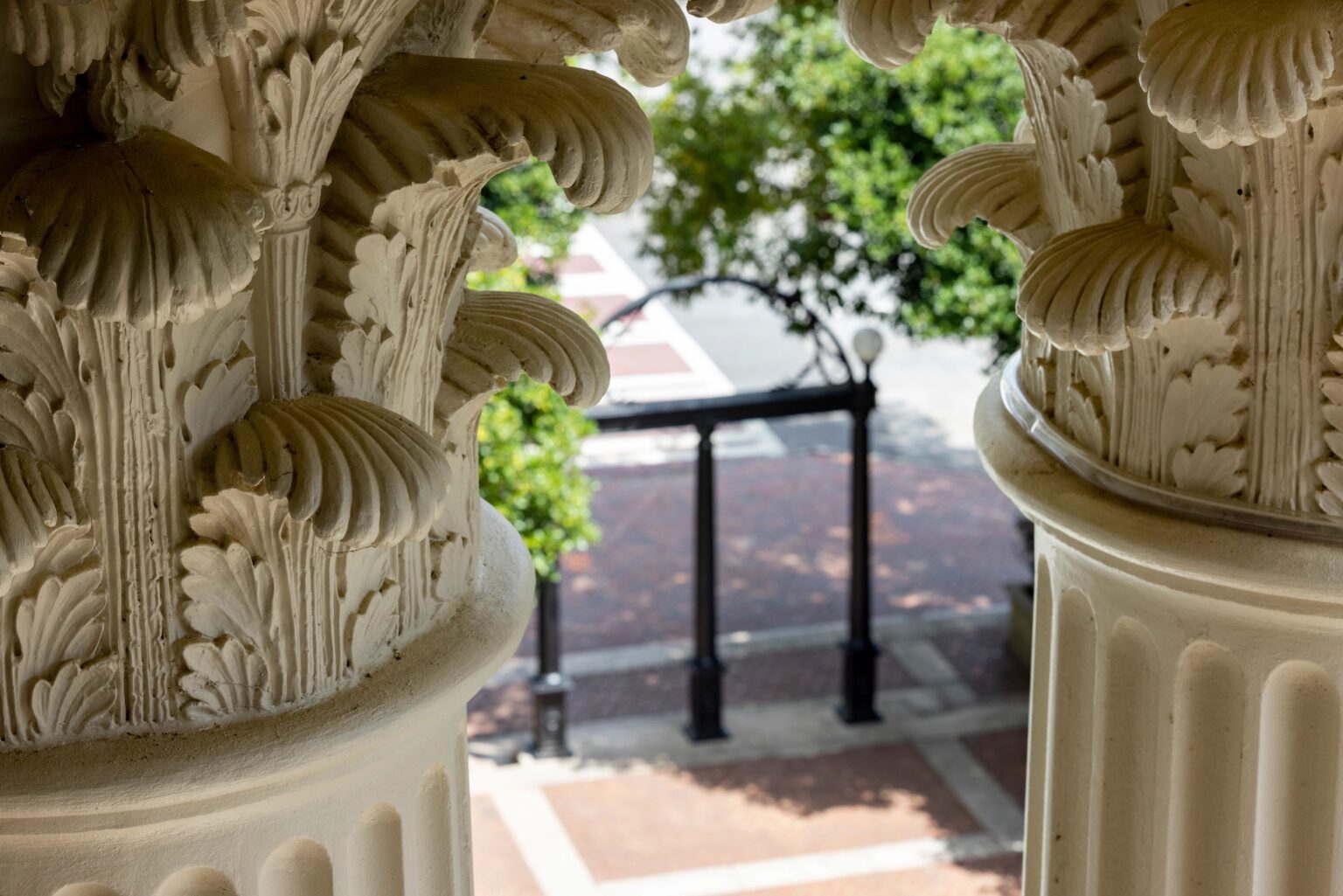By Carrie England
and Tina
Stow
Georgia Research Alliance
In his new role, Knapp plans to focus on the study and improvement of plants with economic importance in the Southeast and Georgia, as well as research that will yield economic and commercial benefits for the state and nation.
Knapp is one of more than 50 scientists attracted to Georgia research universities under the GRA Eminent Scholars Program. The program is a national model for attracting world-class scientific talent as part of a strategy to build a technology-rich economy. It has brought more than $1 billion in new research funding to the Georgia economy over the past 14 years. GRA eminent scholars have started 90 new technology companies.
During his nearly 20 years at Oregon State University, where he served as the Endowed Chair of the Crop and Soil Science Department from 1997 to 2004, Knapp and his team conducted landmark research that doubled the seed production of meadowfoam, a wildflower now grown commercially for oil used in cosmetics and other industrial products.
$5.4 million grant
Recently, Knapp worked as a co-principal investigator with researchers at Indiana University, the University of California at Davis and the University of Massachusetts to secure a $5.4 million National Science Foundation Plant Genome Program grant that will benefit researchers at UGA and several other institutions.His new position with the Department of Crop and Soil Sciences in the UGA College of Agricultural and Environmental Sciences is partially funded by joint contributions from the GRA and the Georgia Seed Development Commission. Knapp will continue studying seed oils as well as the genomics of the sunflower. He will focus, too, on genetic improvements of watermelons and peanuts, both economically important Georgia crops.
Knapp and his colleagues have also begun a project to genetically modify wild lettuces to produce greater concentrations of natural rubber, making it economically feasible to harvest rubber from the stems of the plants. If successful, such discoveries will have direct economic and commercial ramifications, both in Georgia and nationally.
Why rubber?
"With such a high demand and such a limited supply of rubber, developing a domestic source of natural rubber would not only be of economic value to the United States, but would also be important to national security," Knapp said. "It would be one less natural resource that our country would have to depend on other countries to provide."Knapp's recruitment is significant to both the UGA and the GRA.
"The University of Georgia, over the past few years, has assembled a first-class team of scientists in plant and agricultural genomics," said Gordhan L. Patel, UGA vice president for research and associate provost. "Dr. Knapp is a scientist of exceptional caliber to add to the extraordinary strength the university has in the field of agricultural biotechnology."
Roger Boerma, a distinguished research professor in crop and soil sciences, said Knapp adds unique qualities to UGA's biotechnology expertise. "What impresses us about Steven Knapp is that he embraces the vision that cutting-edge science can result in new business and technology in our state," he said.
'Engaged'
"He is very engaged with our students and other faculty and is raising their enthusiasm to new heights," Boerma said. "We want folks that don't just paddle their own boat but set the tone of success for everyone else at the university as well. Steve is especially gifted at doing that."Knapp received the Earl Price Award for Research Excellence from Oregon State's College of Agricultural Sciences. He has also been named a fellow of both the Crop Science Society of America and the American Society of Agronomy.
He holds several patents for his work on plant variety protection and received the Alexander von Humboldt Fellowship in Bonn, Germany, awarded to highly qualified scholars and scientists around the world.
"Dr. Knapp's research has countless long-term possibilities, both technologically and commercially," said Michael Cassidy, president of the Georgia Research Alliance.
'What we look for'
"He embodies what we look for in our Eminent Scholars: scientific leaders conducting groundbreaking research with the potential to help change the world," Cassidy said. "The GRA is proud to have played a part in recruiting such talent to Georgia."Knapp received his Ph.D. in agronomy and plant breeding from the University of Nebraska. He worked for a short time as a plant breeder with Atlantic Richfield in California.
While at Oregon State, he attracted millions of dollars of grants and contracts for the university. The U.S. Department of Agriculture, Procter and Gamble, Pioneer Hi-Bred, Advanta Seeds, Syngenta, the Soap and Detergent Association, and Kraft-General Foods have each supported his research on the genetics of oilseed crops.
"The endowment that the Georgia Research Alliance supports will allow me to venture into new areas of research," Knapp said. "Also, the climate supported by both the GRA and the University of Georgia is conducive to working with business and industry to leverage dollars and help commercialize the technology that we develop in our labs. These things played an important factor in my decision to come to Georgia."
(Carrie England and Tina Stow are employed by Jackson Spalding, representing the Georgia Research Alliance. Dan Rahn, a news editor with University of Georgia College of Agricultural and Environmental Sciences, and free-lance writer Beverly Harvey also contributed to this article.)






